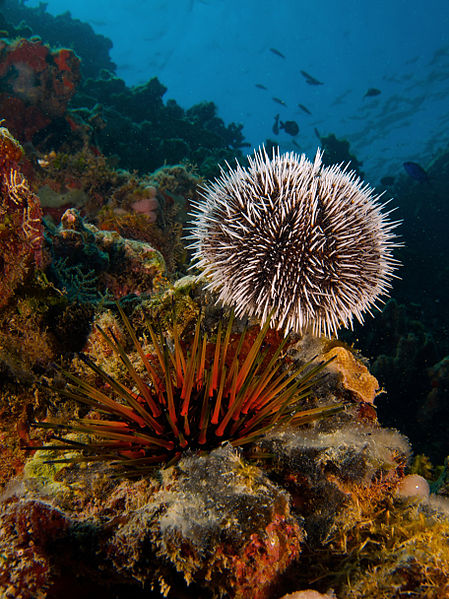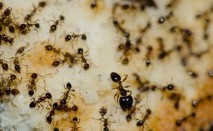
Category: Invertebrates

These small, spiny, globular animals inhabit all the oceans of the world and can survive in shallow intertidal zones, 5000 meter deep abyssal zones, and nearly anything in between. They move slowly about on their hydraulic tube feet, feeding mostly on algae. Sea urchins are able to adjust their metabolisms to the level of nutrition available in their environment. Many species of animals, including humans, hunt and eat sea urchins. Their internal organs are protected by a hard shell called a “test”, to which their spines are attached via rounded turbercles. The spines serve as protection and are toxic in some species.
https://en.wikipedia.org/wiki/Sea_urchin

It’s an ant’s world. We’re just living in it.
Do humans truly dominate the world? The Argentine ant may have something to say about that. Many ants are known for their large colonies, but the Argentine ant, named for its South American origins takes this to a whole other level. Due to inadvertent introduction by humans, the Argentine ant has spread to all continents except Antarctica. There are now three known super-colonies of these ants: one in Europe (the largest, covering 3,700 miles), one in California (560 miles), and another on the west coast of Japan. Ants are often territorial, but amazingly, ants belonging to the super-colonies recognize one another: if you were to introduce a super colony ant from Japan to one from Europe or California, they will recognize each other as friends!
Learn more >>
 Discover Animals is a web-based educational resource offered by the NAIA
Discover Animals is a web-based educational resource offered by the NAIA